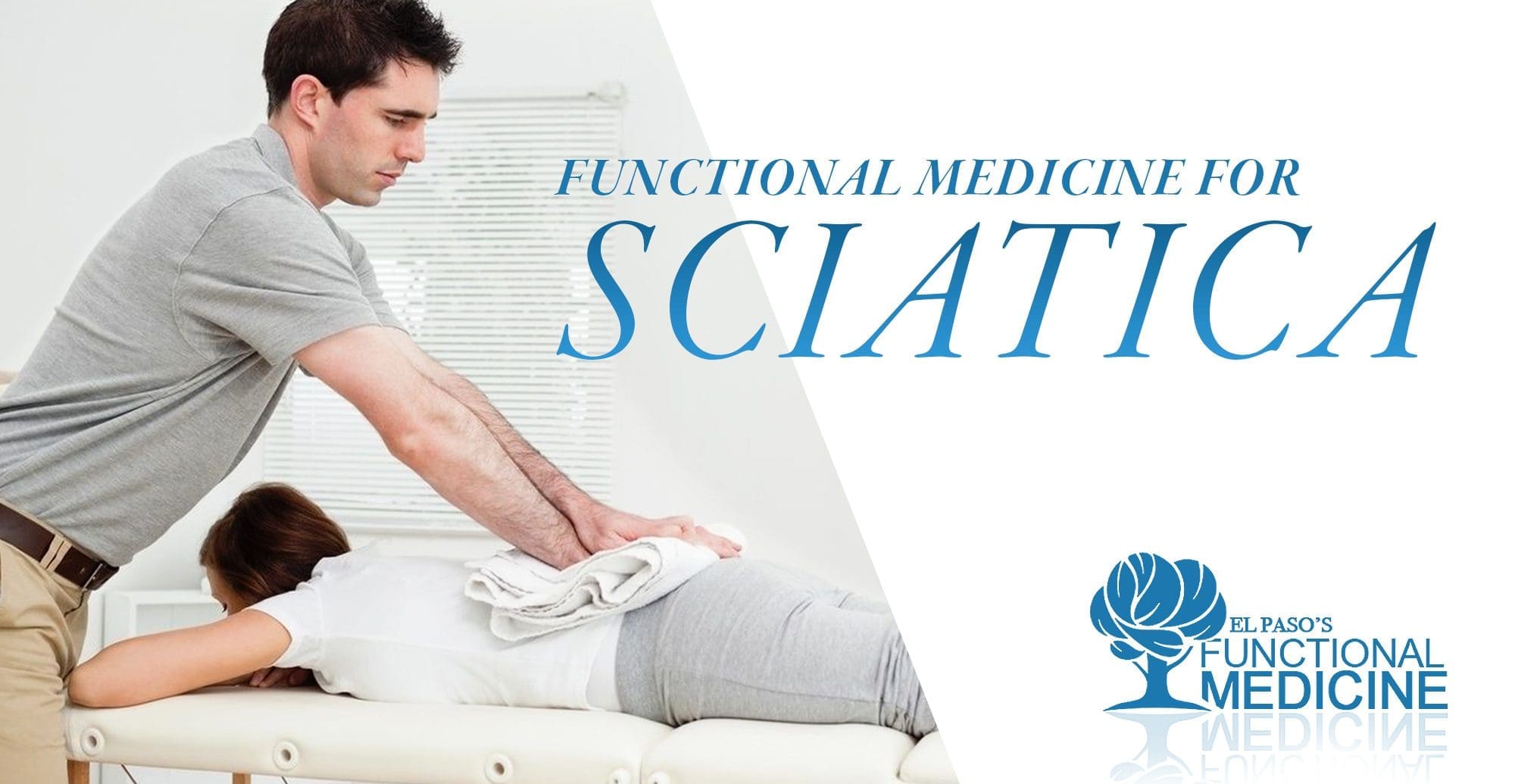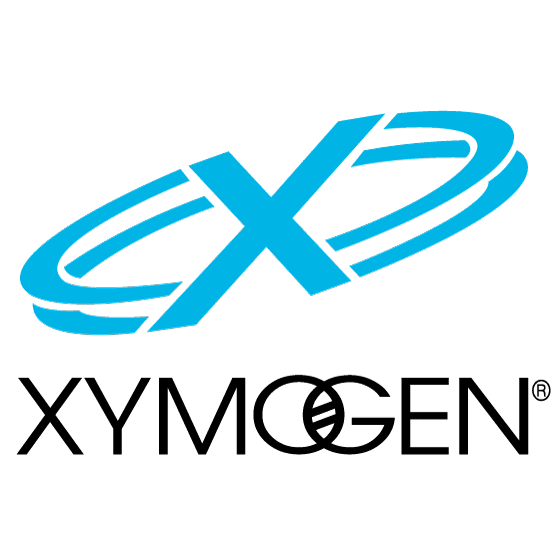Sciatica can cause pain, discomfort, tingling sensations, and numbness along the entire length of the sciatic nerve. Also known as sciatic nerve pain, it is a collection of symptoms caused by various health issues. Many people will turn to the use of drugs and/or medications as well as surgery to treat sciatica; however, research studies have demonstrated that functional medicine can help improve sciatic nerve pain.
A 2010 research study published in the Journal of Manipulative Physiological Therapies demonstrated that approximately 60 percent of patients with sciatica benefited from alternative treatment options, such as chiropractic care. Moreover, functional medicine approaches, including acupuncture, yoga, and massage therapy, among other alternative treatment options, have been demonstrated to help improve sciatic nerve pain. Functional medicine can help safely and effectively provide sciatica pain relief.
Table of Contents
Functional Medicine Approaches for Sciatica
Treatment for sciatica can depend largely on the underlying health issues causing the painful symptoms; therefore, it’s important for people to seek help from a healthcare professional. While many doctors choose to utilize drugs and/or medications, such as anti-inflammatory drugs, muscle relaxers, or steroids, to treat sciatic nerve pain, many research studies have demonstrated that alternative treatment options can help improve sciatica. Below, we will discuss functional medicine approaches that can help improve sciatica symptoms.

Sciatica is a collection of symptoms characterized by radiating pain, tingling sensations, and/or numbness which extends throughout the length of the sciatic nerve. Sciatica, also known as sciatic nerve pain, is generally diagnosed through its symptoms and depending on the type of painful symptoms, a healthcare professional can safely and effective treat sciatic nerve pain. Functional medicine approaches, such as chiropractic as well as nutrition and lifestyle modifications, can ultimately help improve sciatic nerve pain, or sciatica. – Dr. Alex Jimenez D.C., C.C.S.T. Insight
Chiropractic Care
One research study published in the Official Journal of the North American Spinal Society demonstrated that after comparing the results of 102 adults who suffered from sciatic nerve pain, those who received chiropractic care experienced less pain, fewer number of days with pain, and decreased instances moderate to severe pain compared to those adults who didn’t receive chiropractic care for their sciatica.
Disk herniations are some of the most common causes of sciatica. There are several types of “ruptured” or herniated discs. Prolapse disc bulges are considered less severe because the disc’s outermost layer is still intact; however, extrusion or sequestration disc bulges are generally considered more painful. These types of ruptured or herniated discs cause damage to the outer layer of the spinal disc, which leads tissue to push through from where it’s normally constrained. This can compress the sciatic nerve and cause symptoms.
Healthcare professionals need to know the patient’s symptoms to understand their health issues and follow the appropriate treatment approach. Sciatica can be diagnosed by a chiropractor or doctor of chiropractic during a physical exam. Doctors can also perform X-rays and other tests, such as magnetic resonance imaging, or MRI, to diagnose the spine’s condition. After diagnosis, a chiropractor may utilize spinal adjustments and manual manipulations to correct the spine and relieve sciatic nerve pain.
Yoga
Stretches and exercise can aggravate sciatica; however, yoga has been demonstrated to help relieve sciatic nerve pain. Some people have reported that sitting and/or standing for extended periods of time and then moving around suddenly can aggravate sciatica. Scrunching or shortening the spine, such as raising the legs up and/or bringing the knees towards the chest in a squatting position, can commonly affect symptoms.
On the other hand, stretching and exercising the spine through yoga can help promote good posture while reducing stiffness, inflammation, and pain frequently associated with sciatic nerve pain. Research studies have demonstrated that yoga is a safe and effective treatment for people with sciatica. Some of the most important movements for preventing sciatic nerve pain focus on building strength and relaxing stiffness. Stretches and exercises may even be utilized in rehabilitation settings for patients with sciatica following surgery.
Acupuncture and Massage Therapy
Acupuncture is a traditional Chinese medicine practice based on regulating overall health and wellness by opening the human body’s natural flow of energy. It utilizes small, virtually pain-free needles to target specific pathways in the human body. Acupuncture has been approved by the FDA as a treatment for back pain, and it’s supported in various research studies for relieving chronic pain, including sciatica.
Massage therapy is another non-surgical, holistic approach that helps open muscles, tissues, and energy channels within the human body to help improve blood flow and reduce painful symptoms. Massage therapy helps reduce back pain, improve muscle relaxation, and even promote the healthy release of endorphins, or the human body’s natural “feel good” substances that act as pain relievers to improve painful symptoms.
Nutrition and Lifestyle Modifications
Approximately 5 to 10 percent of patients with low back pain also have sciatica; however, healthcare professionals have demonstrated that a patient’s nutrition and lifestyle can increase the risk of developing sciatic nerve pain. Also, factors like height, age, stress, being overweight or obese, sitting or standing for extended periods of time, and smoking, can also increase the risk of developing sciatica and other problems.
Many of these risk factors cause inflammation, which makes it difficult to heal from injuries and conditions. To prevent inflammation and improve the odds of developing sciatica, eat a nutrient-dense healing diet, avoid smoking/using recreational drugs, exercise, and get good sleep. Constipation may also cause toxicity and inflammation. Anything which causes toxicity or inflammation can cause sciatica. Nutrition and lifestyle modifications can ultimately help improve sciatic nerve pain.
Sciatica is a collection of symptoms caused by the compression or impingement of the spinal cord and/or nerve roots. Understanding the symptoms of sciatic nerve pain is essential for obtaining a diagnosis to follow up with the best treatment.
Additional Topic Discussion: Severe Sciatica
Back pain is one of the most prevalent causes of disability and missed days at work worldwide. Back pain attributes to the second most common reason for doctor office visits, outnumbered only by upper-respiratory infections. Approximately 80 percent of the population will experience back pain at least once. Your spine is a complex structure of bones, joints, ligaments, and muscles, among other soft tissues. Injuries and/or aggravated conditions, such as herniated discs, can eventually lead to symptoms of sciatica or sciatic nerve pain. Sports or automobile accident injuries are often the most frequent cause of painful symptoms; however, the simplest movements can sometimes have these results. Fortunately, alternative treatment options, such as chiropractic care, can help ease sciatic nerve pain, or sciatica, through spinal adjustments and manual manipulations, ultimately improving pain relief.
Formulas for Methylation Support
XYMOGEN’s Exclusive Professional Formulas are available through select licensed healthcare professionals. The internet sale and discounting of XYMOGEN formulas are strictly prohibited.
Proudly, Dr. Alexander Jimenez makes XYMOGEN formulas available only to patients under our care.
Please call our office for us to assign a doctor consultation for immediate access.
If you are a patient of Injury Medical & Chiropractic Clinic, you may inquire about XYMOGEN by calling 915-850-0900.
For your convenience and review of the XYMOGEN products, please review the following link.*XYMOGEN-Catalog-Download
* All of the above XYMOGEN policies remain strictly in force.
Post Disclaimer
Professional Scope of Practice *
The information on this blog site is not intended to replace a one-on-one relationship with a qualified healthcare professional or licensed physician and is not medical advice. We encourage you to make healthcare decisions based on your research and partnership with a qualified healthcare professional.
Blog Information & Scope Discussions
Welcome to El Paso's Premier Wellness and Injury Care Clinic & Wellness Blog, where Dr. Alex Jimenez, DC, FNP-C, a board-certified Family Practice Nurse Practitioner (FNP-BC) and Chiropractor (DC), presents insights on how our team is dedicated to holistic healing and personalized care. Our practice aligns with evidence-based treatment protocols inspired by integrative medicine principles, similar to those found on this site and our family practice-based chiromed.com site, focusing on restoring health naturally for patients of all ages.
Our areas of chiropractic practice include Wellness & Nutrition, Chronic Pain, Personal Injury, Auto Accident Care, Work Injuries, Back Injury, Low Back Pain, Neck Pain, Migraine Headaches, Sports Injuries, Severe Sciatica, Scoliosis, Complex Herniated Discs, Fibromyalgia, Chronic Pain, Complex Injuries, Stress Management, Functional Medicine Treatments, and in-scope care protocols.
Our information scope is limited to chiropractic, musculoskeletal, physical medicine, wellness, contributing etiological viscerosomatic disturbances within clinical presentations, associated somato-visceral reflex clinical dynamics, subluxation complexes, sensitive health issues, and functional medicine articles, topics, and discussions.
We provide and present clinical collaboration with specialists from various disciplines. Each specialist is governed by their professional scope of practice and their jurisdiction of licensure. We use functional health & wellness protocols to treat and support care for the injuries or disorders of the musculoskeletal system.
Our videos, posts, topics, subjects, and insights cover clinical matters and issues that relate to and directly or indirectly support our clinical scope of practice.*
Our office has made a reasonable effort to provide supportive citations and has identified relevant research studies that support our posts. We provide copies of supporting research studies available to regulatory boards and the public upon request.
We understand that we cover matters that require an additional explanation of how they may assist in a particular care plan or treatment protocol; therefore, to discuss the subject matter above further, please feel free to ask Dr. Alex Jimenez, DC, APRN, FNP-BC, or contact us at 915-850-0900.
We are here to help you and your family.
Blessings
Dr. Alex Jimenez DC, MSACP, APRN, FNP-BC*, CCST, IFMCP, CFMP, ATN
email: coach@elpasofunctionalmedicine.com
Licensed as a Doctor of Chiropractic (DC) in Texas & New Mexico*
Texas DC License # TX5807
New Mexico DC License # NM-DC2182
Licensed as a Registered Nurse (RN*) in Texas & Multistate
Texas RN License # 1191402
ANCC FNP-BC: Board Certified Nurse Practitioner*
Compact Status: Multi-State License: Authorized to Practice in 40 States*
Graduate with Honors: ICHS: MSN-FNP (Family Nurse Practitioner Program)
Degree Granted. Master's in Family Practice MSN Diploma (Cum Laude)
Dr. Alex Jimenez, DC, APRN, FNP-BC*, CFMP, IFMCP, ATN, CCST
My Digital Business Card




